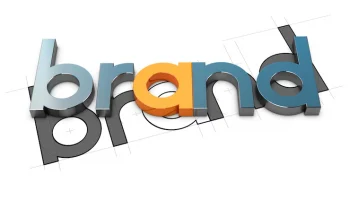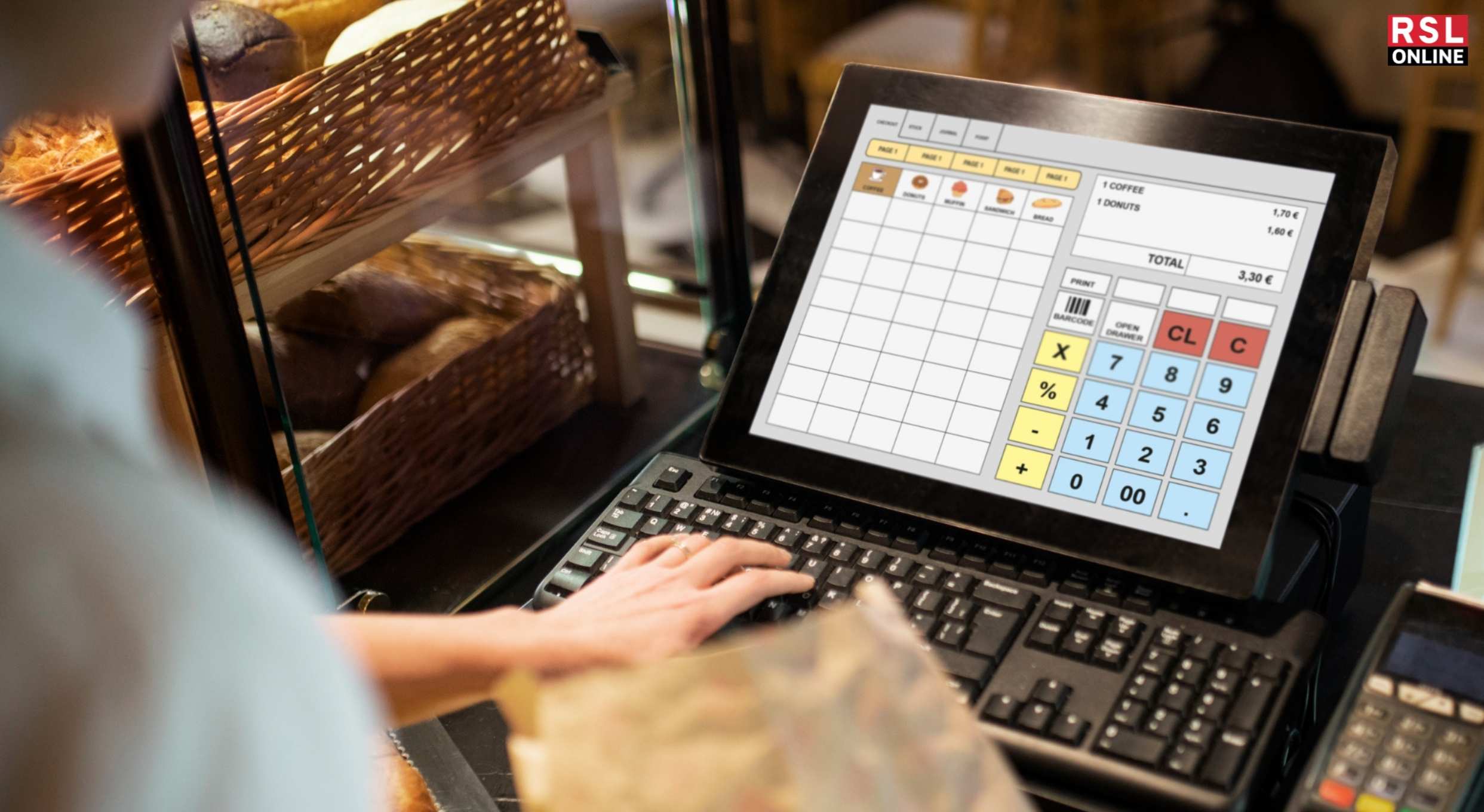Running a small business becomes a whirlwind activity involving managing stock levels processing payments, and handling much more. Your Point-of-Sale system can well do all of this because it streamlines all your operations and maximizes efficiency.
We’ll discuss the best POS systems for small businesses and relevant issues with regard to inventory management, sales tracking, customer relationship management, and payment processing in the blog.
Whether you are a novice entrepreneur or an experienced one, selecting the appropriate POS will decide a major part of your profit margin. Let’s come along and discover the best POS for small businesses.
What is a POS System? Why Small Businesses Need One
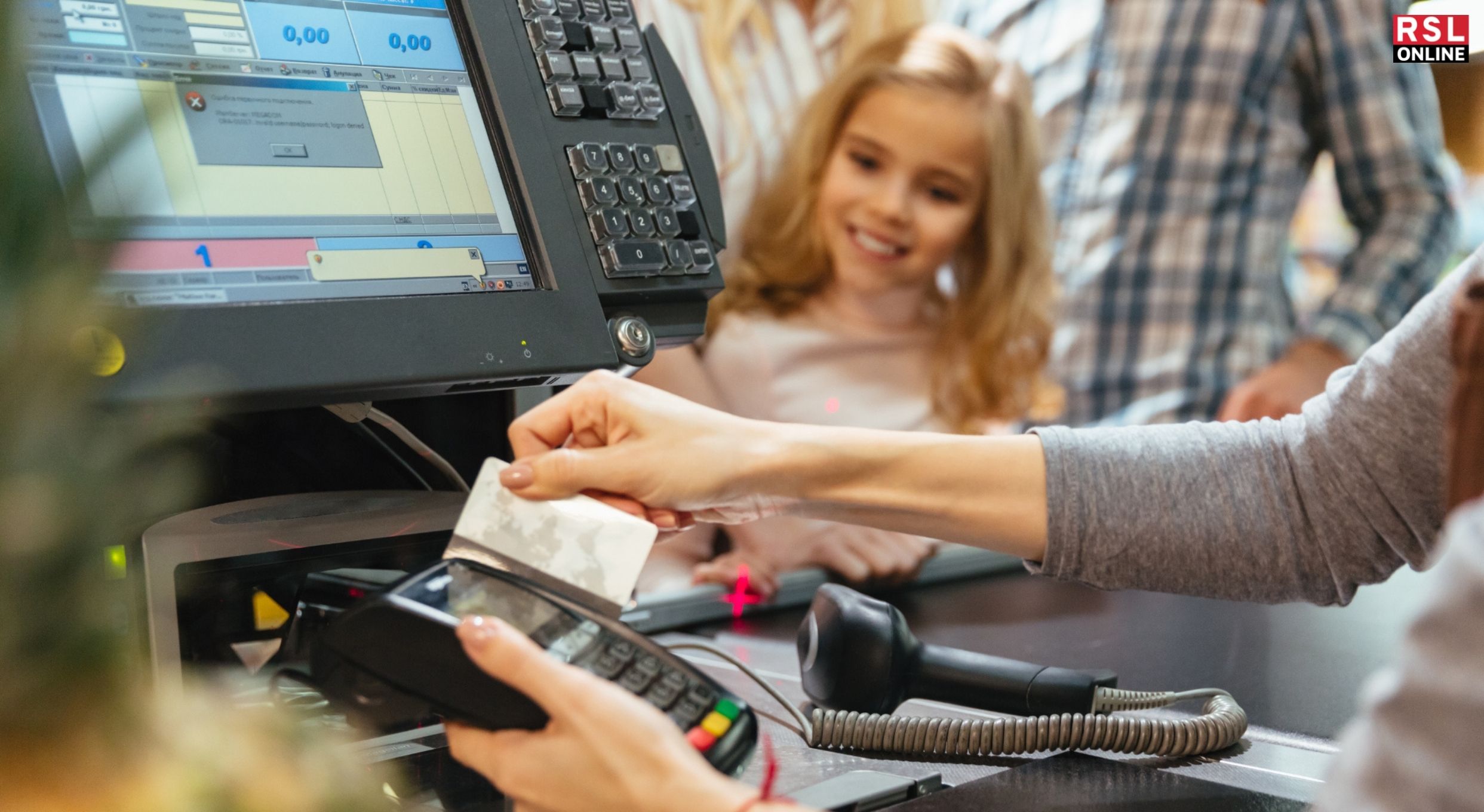
A Point of Sale is a software and hardware integrated system that would help organizations manage transactions, monitor sales, and make improvements in all operations.
Normally, it involves a terminal, cash drawer, barcode scanner, and receipt printer. To me, more modern would be collaborating with software to keep tabs on inventory, generating sales reports, and managing customer data.
A POS system is much more than just taking payments for small businesses. It’s a full solution that helps things work better and brings in increased customer satisfaction. Small businesses can save time, reduce errors, and focus on growth by automating many tasks done manually.
Another way POS systems show sales trends helps in smarter and data-driven decisions on inventory. Regardless of whether the business is a retail outlet, restaurant, or service business, owners will have all they need to make them successful players in today’s quick-paced marketplace. While giving seamless checkout to customers.
Criteria for Selecting the Best POS System for Small Businesses
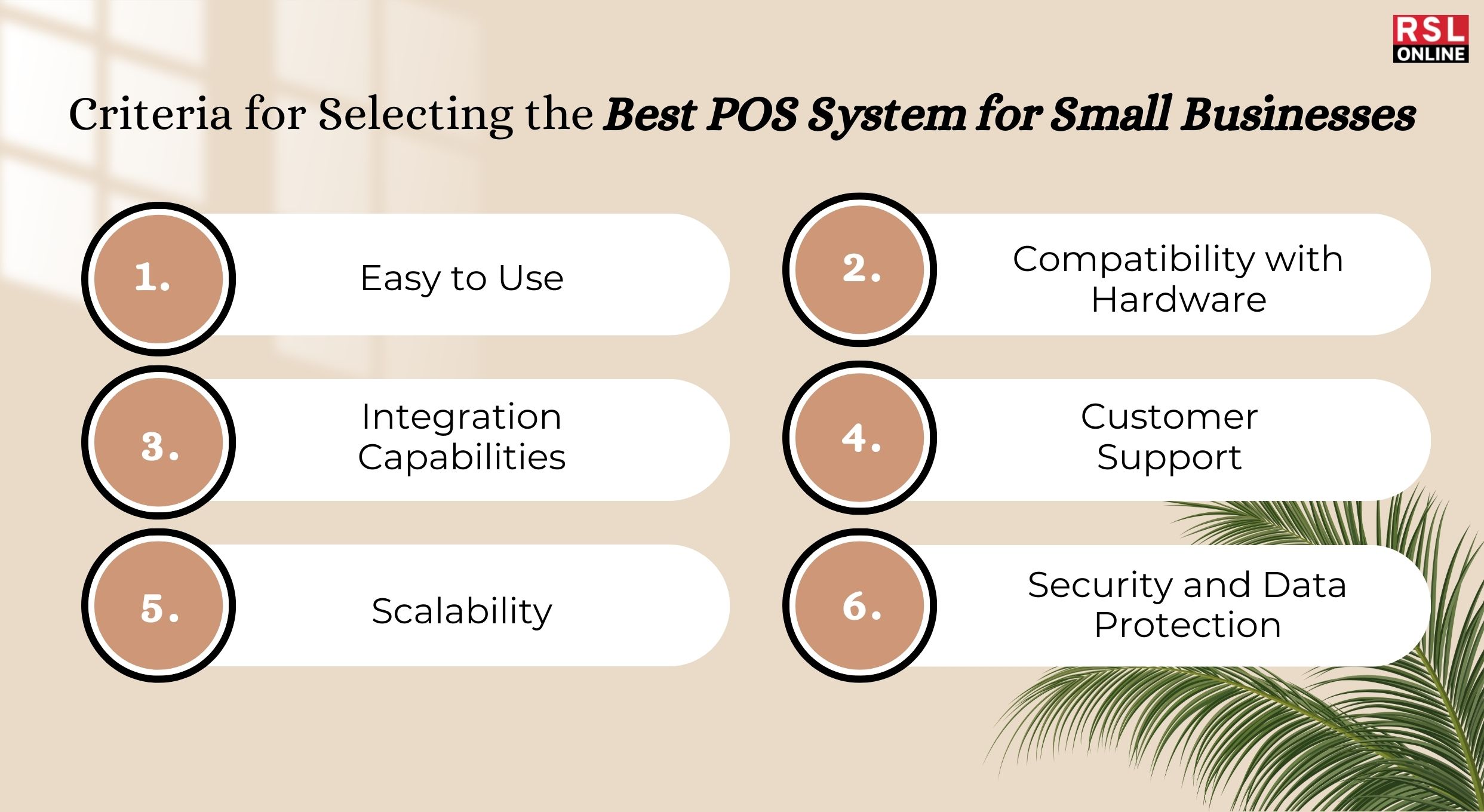
Picking the right Point-of-Sale (POS) system is very important for small businesses to make things easier and improve customer experiences. Important factors to consider are:
Easy to Use: A simple interface enables quick initiation by employees with reduced time spent on training and fewer errors during transactions.
Compatibility with Hardware: The POS system should easily work with current hardware such as barcode scanners, receipt printers, and cash drawers. This will help save money on upgrades.
Integration Capabilities: This would be the system that interoperates with other applications in developing a smooth workflow account software, stock management, and even e-commerce sites.
Customer Support: Good customer support and easily understandable training literature enable a smooth setup in addition to solving problems whenever needed.
Scalability: Consider a system that can scale along with your business, accommodating more locations, users, or sophisticated functionalities as and when needed.
Security and Data Protection: A sound POS system places much emphasis on secure payment processing and follows data protection rules that protect your business and customer information.
Top 10 POS Systems for Small Business
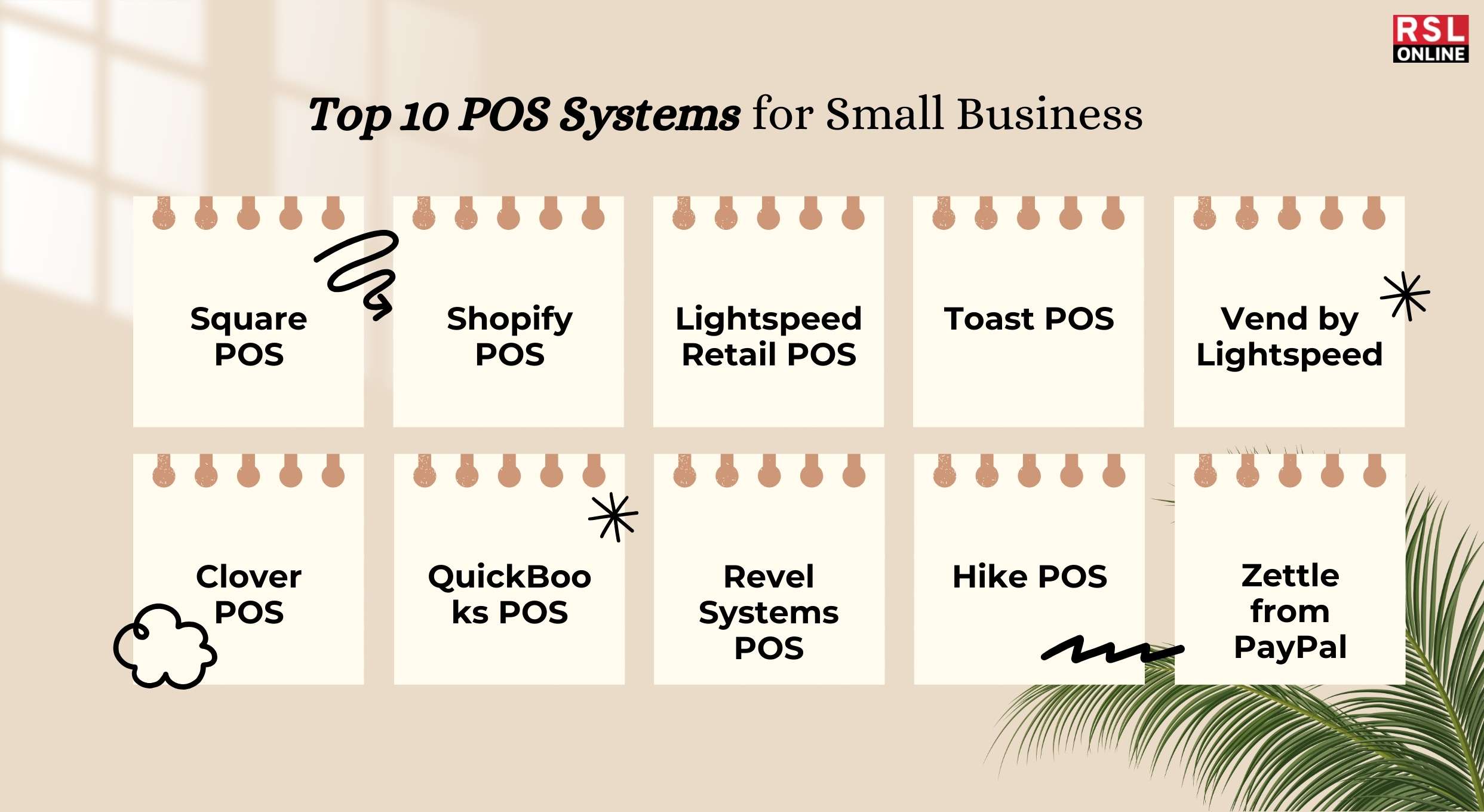
The best POS for small business can mean all the differences between efficiency, customer service, and operational smoothness.
Modern POS systems go way beyond transaction processing, providing a myriad of tools to handle stock management, sales tracking, employee tracking, and more. In this section, we look at the top 10 POS systems, pointing out their features, advantages, and how they fit different needs.
Square POS
Square POS is very popular among the best POS for small businesses because of its ease and flexibility of usage. It’s excellent for new companies and small shops, as well as offering free software and low-cost hardware.
Characteristics:
- No monthly fees on basic plans.
- The free online store connects.
- Strong Sales Reports and Inventory Control Methods.
Best for Small shops, food trucks, and service providers who need an all-inclusive solution.
Shopify POS
Shopify POS is retail and e-commerce business-oriented. This application links both online and in-store sales. Its strong platform makes it good for small businesses who wish to start selling online.
Characteristics:
- Connect to Shopify’s e-commerce site.
- Inventory synchronization between the website and physical stores.
- Using advanced analysis and customer profiles.
Best suited for: Retailers with an online presence or looking to expand their business.
Lightspeed Retail POS
Lightspeed Retail POS is a robust inventory-handling tool for businesses that manage lots of inventories. Advanced features make it the most sought-after one among retailers, particularly huge stock-handling businesses.
Characteristics:
- Advanced inventory management tools.
- Customizable reporting options.
- Employee management and scheduling tools.
Best for: Small businesses with complex inventory needs, such as boutiques and speciality stores.
Toast POS
Toast POS is specially designed for the food and beverage industry. It helps restaurants, cafes, and bars. It’s simple design and special tools make daily work easier.
Characteristics:
- Menu management and personalization.
- Table management and tracking order.
- Contactless payment options.
Best for: This system is ideal for restaurants and food service companies seeking industry-specific POS.
Vend by Lightspeed
Vend is a cloud-based, another best POS for small businesses that is very simple and efficient. It is one of the best for small retailers seeking scalability and easy integration.
Characteristics:
- Easy design.
- Multi-store management capabilities.
- It uses the best payment processors.
Best suited for: Growing small businesses looking for scalability.
Clover POS
Clover POS is a customizable and versatile system offering hardware and software for small businesses. It is very versatile and can be applied in any industry.
Characteristics:
- Several hardware options.
- Huge app store with more features.
- Remote management via a mobile application.
Suitable for: Companies looking for customized solutions.
QuickBooks POS
QuickBooks POS is an excellent choice for businesses using QuickBooks for accounting. It would integrate perfectly and make financial management and reporting much easier.
Features:
- Direct integration with QuickBooks.
- Inventory tracking and management.
- Customer loyalty program support.
Best for: Businesses that prioritize financial integration and accounting efficiency.
Revel Systems POS
It is pretty much a solid iPad-based POS solution that features quite a lot, but that makes it a tad costlier, yet small businesses will need these functions, particularly during those intricate needs.
Features:
- Advanced inventory and sales tracking.
- CRM tools for customer engagement.
- Multi-location support.
Best for: They are the old companies with more funds and many complicated operations.
Hike POS
Hike POS is an easily growing cloud system with high simplicity to work. It can be perfectly suited for small shops and even tiny service businesses.
Characteristics:
- Multichannel sales capability.
- Complete inventory control.
- Integrations with Shopify, Xero, and QuickBooks.
Best for: Small businesses that need an easy, scalable POS.
Zettle from PayPal
Previously known as iZettle, Zettle by PayPal is a mobile payment service that is quite ideal for small business units as it is highly suited in case one needs to cover a lot of space.
Characteristics:
- Cheap mobile card readers.
- Integrating with PayPal and e-shopping sites.
- Simple, intuitive interface.
Best for: Good for small business users who need flexibility and use PayPal.
Features to Look for in a POS System
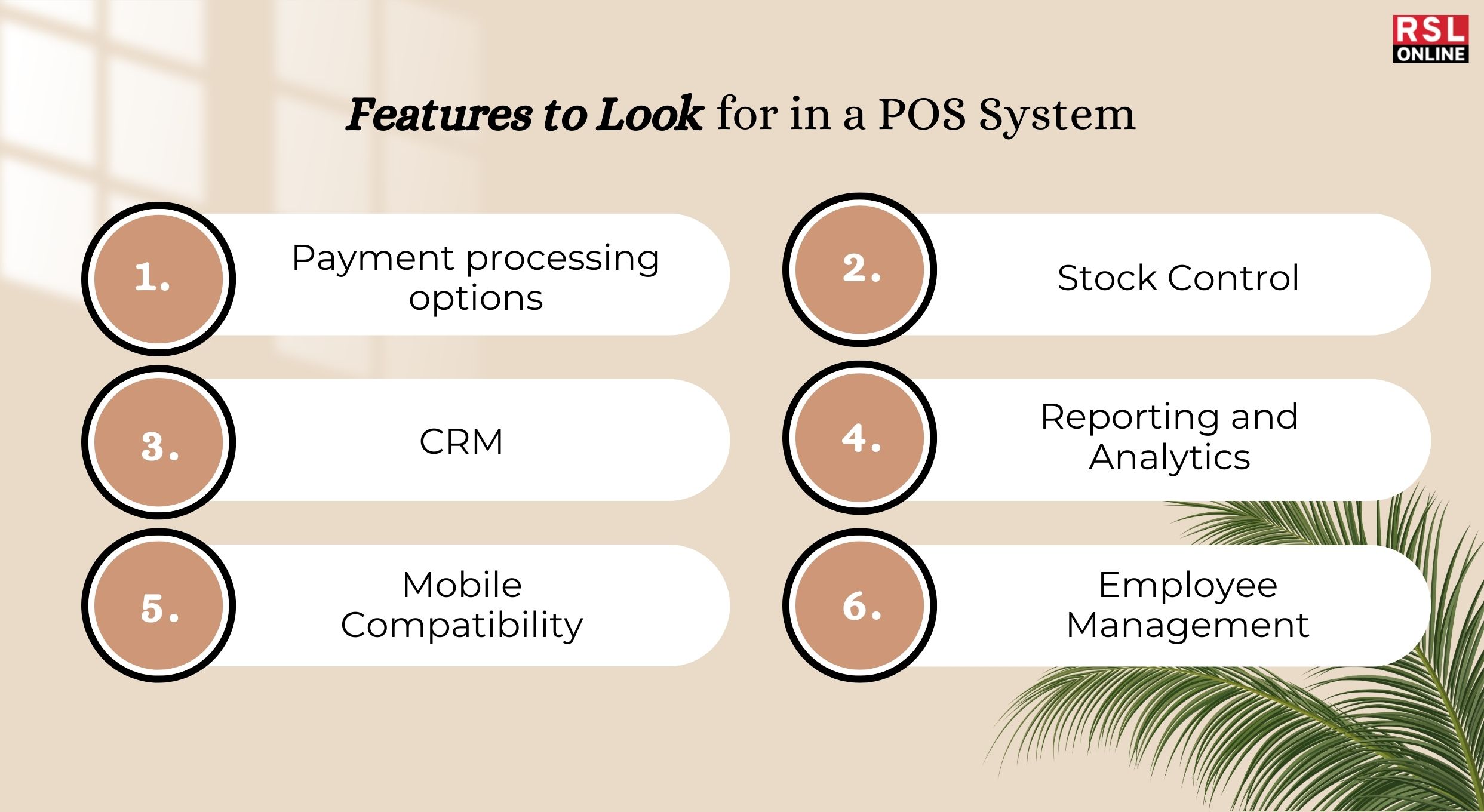
The best POS for small business can make a big difference in how well your business works and grows. Here are important features to think about:
1. Payment processing options. Firstly, the best POS system should accommodate a number of ways that your customers can pay with credit cards, digital wallets, and contactless payment, among others.
2. Stock Control. Secondly, a good POS keeps a count of the stock level in real-time, reorders goods automatically, removes errors, and maintains an updated, well-organized stock.
3. CRM. Thirdly, integrated CRM will be able to keep all information concerning customers, notice what customers buy, and develop individual marketing plans to increase loyalty. 4. Reporting and Analytics: Good reporting tools provide information on sales trends, performance measures, and profit margins for making decisions based on data.
5. Mobile Compatibility. Fourthly, a mobile-compatible POS allows for transactions on the go, which is a big plus for businesses with flexible setups or multiple locations.
6. Employee Management. Fifthly, the features of clock-in tracking, performance monitoring, and role-based access will make employee management easy while increasing accountability.
Pricing Considerations
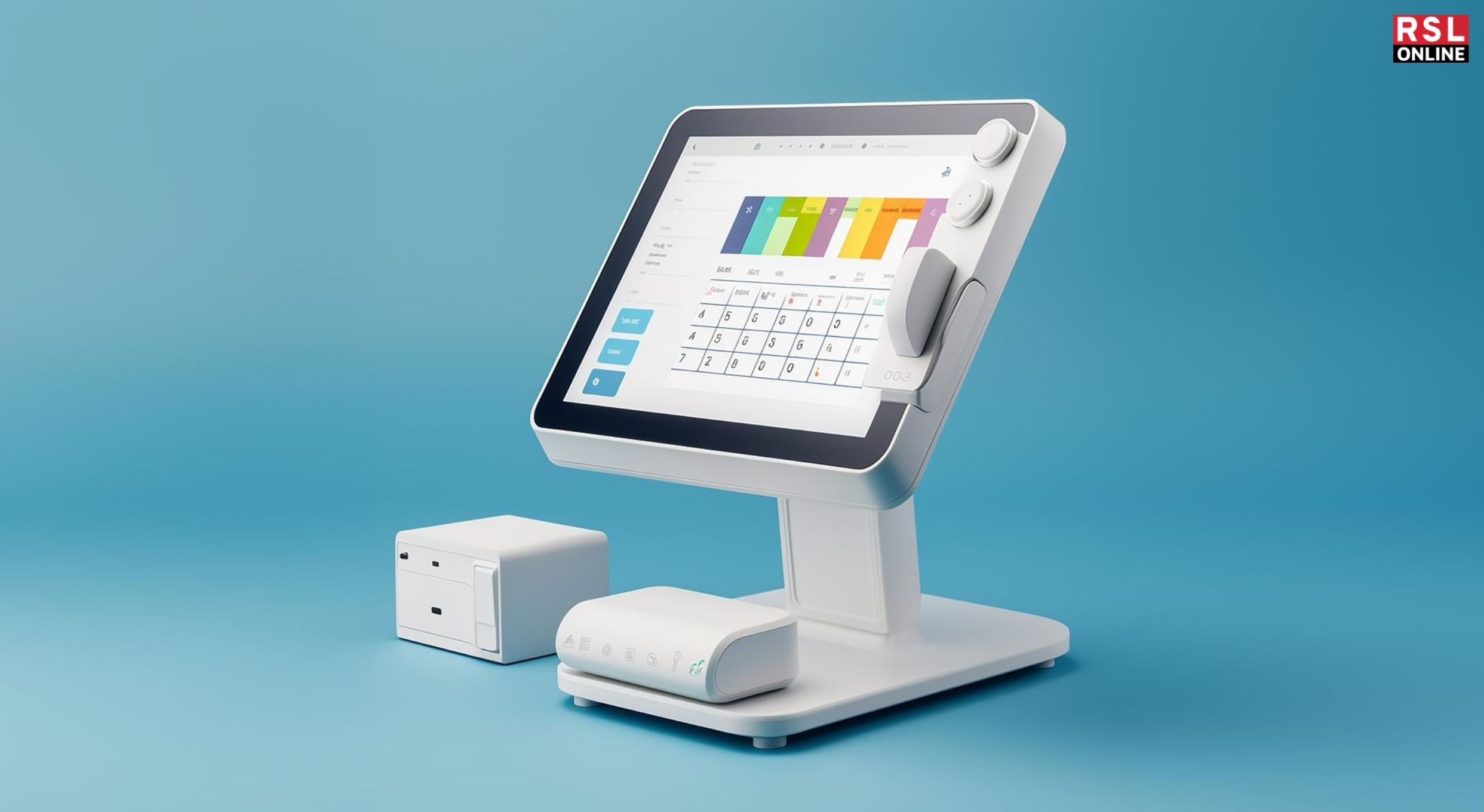
Another one of the most critical factors is that of the pricing, which is a reflection of what ends up directly in the bottom line. Cost structures differ quite significantly among POS systems since this depends upon the different features and the scale the system will entail.
However, there are free systems of POS, but these exist mostly for small businesses in extremely basic need. Limited functionalities sometimes hamper long-run growth or customer experiences.
Paid POS systems usually offer many advanced features, including stock management, analytics, and other customer relationship tools.
There is usually a subscription fee, a one-time payment, and many hidden fees. This includes a transaction fee, a charge for hardware, and also upgrade software fees.
The ROI check at the end is pretty important. A sound POS system would be efficient and help improve customer service with simplified operations, making the front-end cost worthwhile if this will benefit in the long term and save more.
User Reviews and Testimonials
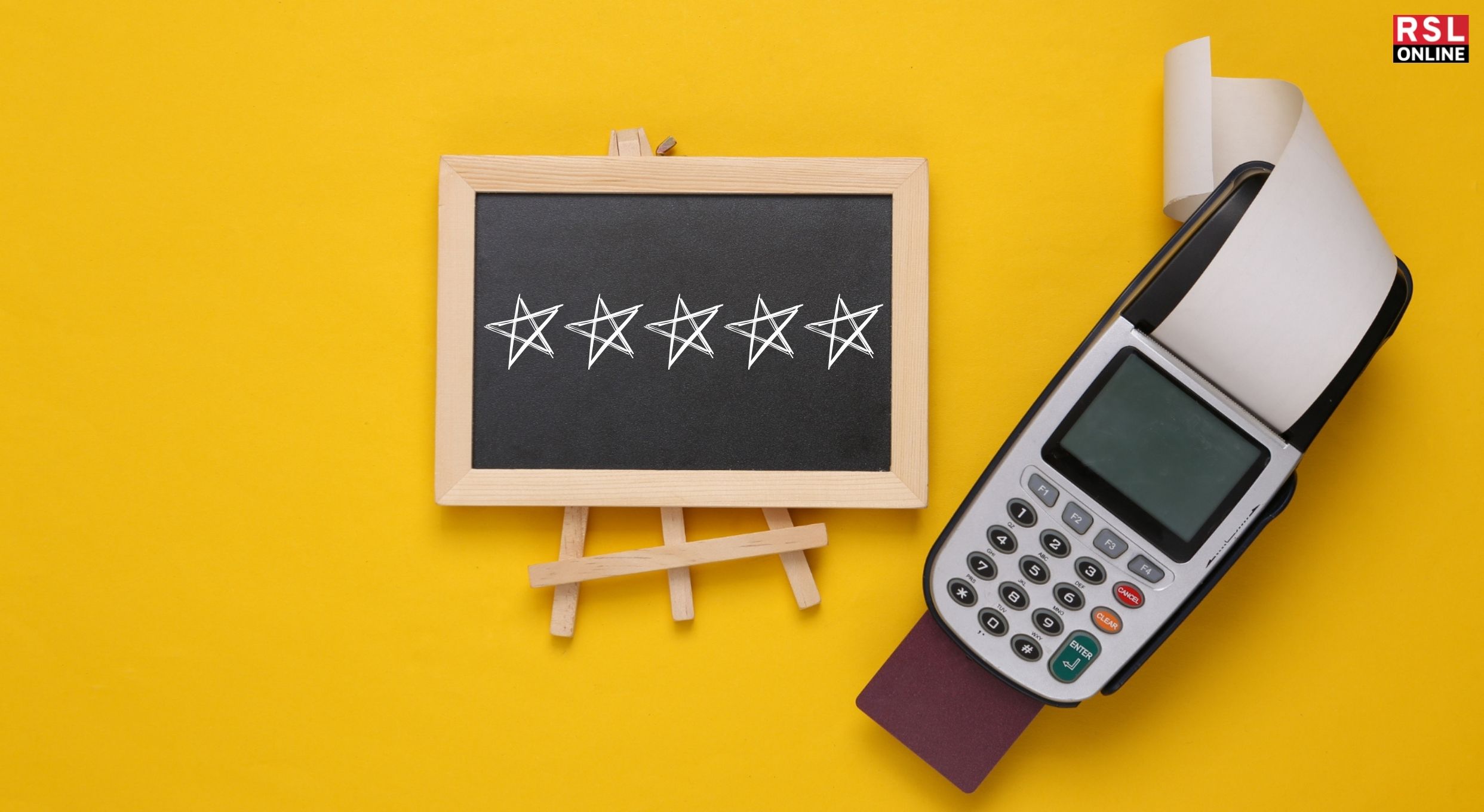
Users of POS (Point of Sale) systems often say they make business work easier. Most small business owners love the way POS systems make sales tracking, inventory management, and customer information collection very easy.
Moreover, the systems are easy to use, as most reviews indicate, making it easy for even non-technological staff members to learn to use the systems. Customers also enjoy the customizable features, where businesses can change the software to suit their needs.
Expert Views
According to experts in retail and hospitality management, point-of-sale systems are modern instruments for improving the process of operation.
They also suggest software that operates with other software tools, like accounting or inventory tools, and, again, they highlight safety features to ensure the security of customer information.
Case Studies
Most case studies reflect high improvements in how businesses work after the introduction of POS systems. Corporations reveal faster service at the tills, minimal errors, and satisfied customers. Hence, it is a very important business tool for expansion and money generation.
Final Words!
Choosing the right POS system can greatly affect how well your small business runs and grows. By looking at things like your budget, what your business needs, and what features you want, you can pick a system that makes operations easier, enhances customer experience, and helps increase your profits.
Remember, the best point-of-sale system is one that serves your business needs and objectives. Don’t feel bad looking around for different options and comparing them, to find the right solution for you.
Read More:
















